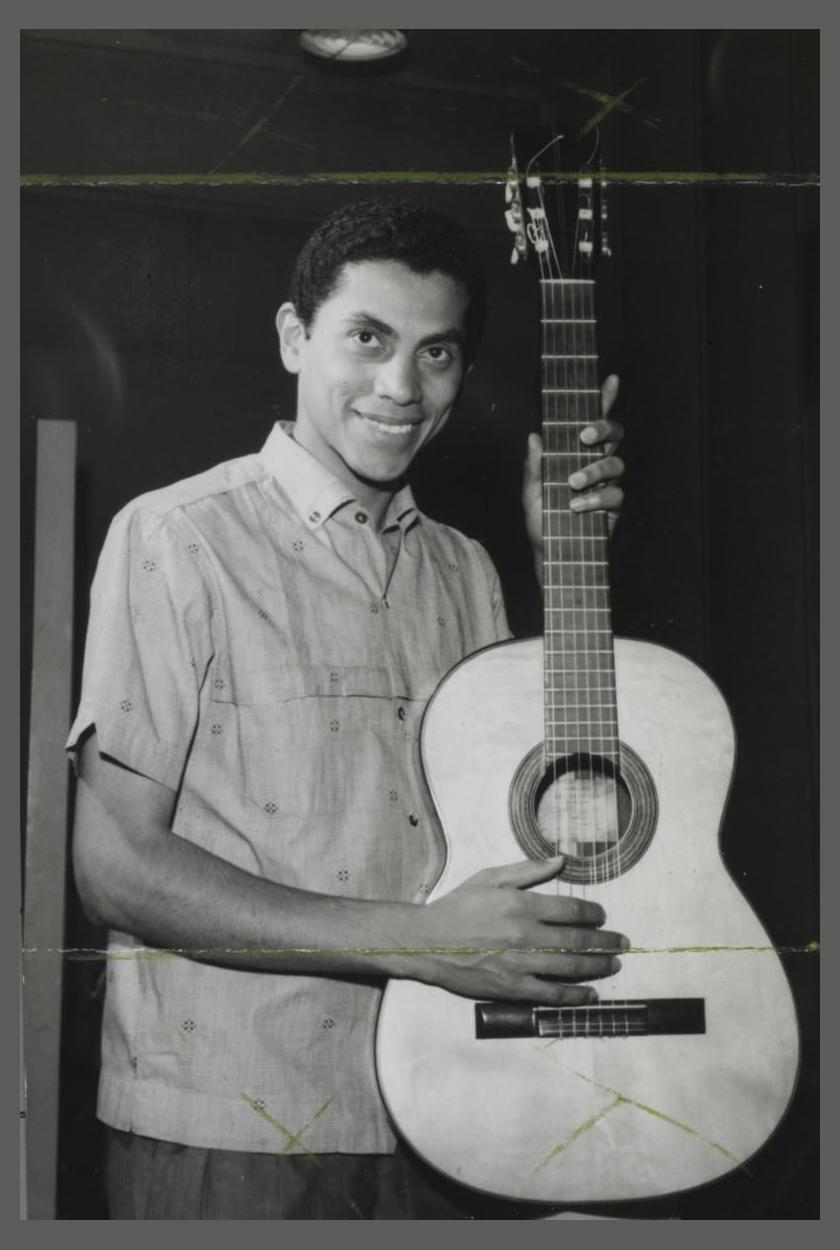 Paulinho da Viola
Paulinho da Viola
Paulinho da Viola: A Timeless Master of Brazilian Music
In the vibrant tapestry of Brazilian music, Paulinho da Viola stands as a towering figure, his songs echoing the rhythms and melodies of his beloved homeland. Born Paulo César Batista de Faria in 1942, Paulinho da Viola embarked on a musical journey that would redefine the genre of samba.
Early Beginnings and Challenges
Paulinho's musical roots were planted in the heart of Rio de Janeiro, where he grew up immersed in the sounds of samba and choro. At a tender age, he displayed a remarkable talent for guitar and composition. However, his path was not without its obstacles. As a young musician, Paulinho faced skepticism and rejection from the established samba scene, which favored more traditional styles.
Rise to Stardom and Controversies
Undeterred, Paulinho persevered, honing his craft and developing a unique blend of traditional and modern samba. His breakthrough came in 1965 with the release of his debut album, "Samba na Madrugada." Featuring the iconic song "Foi Um Rio Que Passou em Minha Vida," the album propelled Paulinho to stardom.
His music often explored themes of social justice and human experience, which sometimes drew controversy. In the 1970s, his song "Para um Amigo Ausente" (For an Absent Friend) was interpreted as a tribute to a political prisoner, leading to censorship by the military dictatorship.
Discography and Collaborations
Paulinho da Viola's discography spans over five decades and includes more than 30 albums. His music continues to captivate audiences worldwide, with notable collaborations with artists such as Toquinho, Chico Buarque, and Milton Nascimento.
Members
Paulinho da Viola's band has featured a rotating lineup of musicians over the years. Some of his most notable collaborators include:
* Luiz Carlos da Vila (cavaquinho)
* Alceu Maia (7-string guitar)
* Sérgio Santos (drums)
* Márcio Bahia (bass)
Legacy and Influence
Paulinho da Viola's contributions to Brazilian music are immeasurable. He has helped to preserve and evolve the samba tradition while inspiring generations of musicians. His songs have become timeless classics, celebrated for their poetic lyrics, captivating melodies, and profound emotional resonance.
As a master storyteller and a cultural icon, Paulinho da Viola continues to be an enduring force in the hearts of Brazilians and music lovers around the world. His legacy as a pioneer of samba and a champion of social justice secures his place as one of the greatest musicians of all time.
In the vibrant tapestry of Brazilian music, Paulinho da Viola stands as a towering figure, his songs echoing the rhythms and melodies of his beloved homeland. Born Paulo César Batista de Faria in 1942, Paulinho da Viola embarked on a musical journey that would redefine the genre of samba.
Early Beginnings and Challenges
Paulinho's musical roots were planted in the heart of Rio de Janeiro, where he grew up immersed in the sounds of samba and choro. At a tender age, he displayed a remarkable talent for guitar and composition. However, his path was not without its obstacles. As a young musician, Paulinho faced skepticism and rejection from the established samba scene, which favored more traditional styles.
Rise to Stardom and Controversies
Undeterred, Paulinho persevered, honing his craft and developing a unique blend of traditional and modern samba. His breakthrough came in 1965 with the release of his debut album, "Samba na Madrugada." Featuring the iconic song "Foi Um Rio Que Passou em Minha Vida," the album propelled Paulinho to stardom.
His music often explored themes of social justice and human experience, which sometimes drew controversy. In the 1970s, his song "Para um Amigo Ausente" (For an Absent Friend) was interpreted as a tribute to a political prisoner, leading to censorship by the military dictatorship.
Discography and Collaborations
Paulinho da Viola's discography spans over five decades and includes more than 30 albums. His music continues to captivate audiences worldwide, with notable collaborations with artists such as Toquinho, Chico Buarque, and Milton Nascimento.
Members
Paulinho da Viola's band has featured a rotating lineup of musicians over the years. Some of his most notable collaborators include:
* Luiz Carlos da Vila (cavaquinho)
* Alceu Maia (7-string guitar)
* Sérgio Santos (drums)
* Márcio Bahia (bass)
Legacy and Influence
Paulinho da Viola's contributions to Brazilian music are immeasurable. He has helped to preserve and evolve the samba tradition while inspiring generations of musicians. His songs have become timeless classics, celebrated for their poetic lyrics, captivating melodies, and profound emotional resonance.
As a master storyteller and a cultural icon, Paulinho da Viola continues to be an enduring force in the hearts of Brazilians and music lovers around the world. His legacy as a pioneer of samba and a champion of social justice secures his place as one of the greatest musicians of all time.